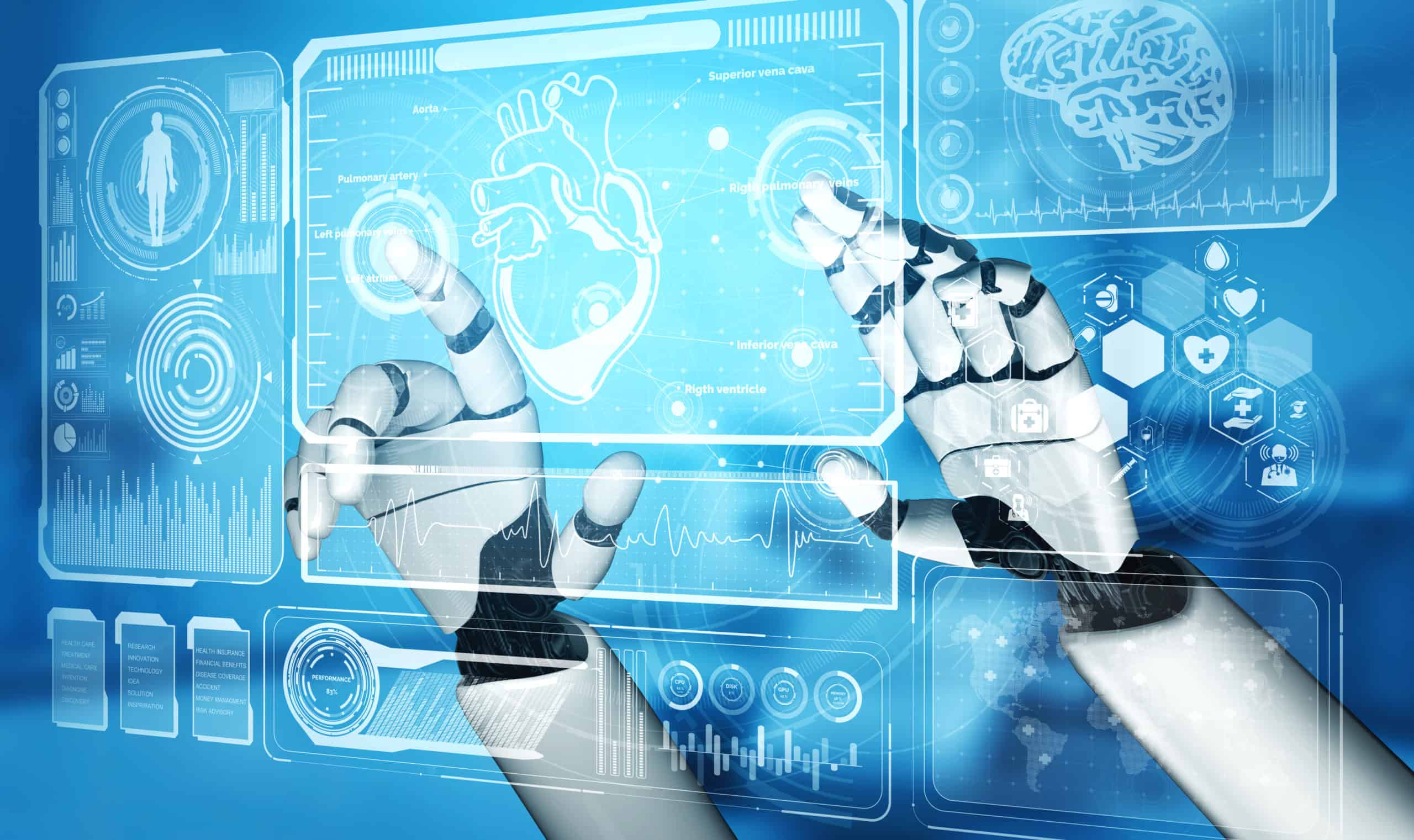
AI and Machine Learning in Healthcare: Revolutionizing Diagnosis and Treatment

Artificial Intelligence (AI) and Machine Learning (ML) have made tremendous strides in recent years, and healthcare is one of the fields most profoundly impacted by these technologies. From diagnostic imaging to personalized treatment plans, AI and ML are revolutionizing how healthcare providers diagnose, treat, and care for patients.
In this article, we will explore how AI and ML are being used in healthcare, the benefits they bring to both providers and patients, and the challenges that remain in implementing these technologies on a larger scale.
AI in Medical Diagnostics
One of the most significant applications of AI in healthcare is in diagnostics. AI-powered algorithms are being used to analyze medical images, such as X-rays, MRIs, and CT scans, with incredible accuracy. These tools can detect diseases like cancer, heart disease, and neurological disorders, often earlier and more accurately than traditional methods.
- Radiology: AI systems can detect abnormalities in medical images that might be missed by human radiologists, improving diagnostic accuracy and enabling earlier intervention.
- Pathology: AI is used to analyze tissue samples, assisting pathologists in diagnosing diseases such as cancer with greater precision.
- Ophthalmology: AI algorithms are being developed to detect conditions like diabetic retinopathy and age-related macular degeneration from retinal scans.
Predictive Analytics for Personalized Medicine
Machine learning models can analyze vast amounts of patient data, including genetic information, lifestyle factors, and medical history, to predict how a patient will respond to specific treatments. This allows healthcare providers to develop personalized treatment plans tailored to the individual, improving outcomes and reducing the likelihood of adverse reactions.
AI-Driven Drug Discovery

The process of discovering new drugs is time-consuming and expensive, often taking years or even decades to bring a new medication to market. AI is changing that by accelerating the drug discovery process. AI algorithms can analyze molecular structures and predict which compounds are likely to be effective in treating specific diseases.
This approach not only speeds up the development of new drugs but also reduces costs, making treatments more accessible. AI-driven drug discovery has already led to the identification of potential treatments for diseases such as Alzheimer's, cancer, and rare genetic disorders.
Virtual Health Assistants
Virtual health assistants, powered by AI, are becoming more common in healthcare. These digital assistants can provide patients with answers to common medical questions, remind them to take their medications, and even schedule appointments with healthcare providers. This reduces the burden on healthcare systems and allows patients to manage their health more effectively.
Challenges and Ethical Considerations
Despite the many benefits of AI and ML in healthcare, there are also significant challenges that need to be addressed. One of the primary concerns is data privacy. With so much sensitive health data being analyzed, it is crucial to ensure that patient information is kept secure and private. Additionally, there is the issue of bias in AI algorithms, which can lead to unequal treatment if not properly addressed.
Another challenge is the integration of AI into existing healthcare systems. Healthcare providers must be trained to use AI tools effectively, and these tools need to be integrated into electronic health record (EHR) systems to be truly effective. Finally, there are ethical concerns about the role of AI in making life-and-death decisions, such as which patients receive critical care in a resource-limited setting.
The Importance of Transparency and Regulation
- Algorithmic Transparency: AI algorithms must be transparent and explainable, ensuring that healthcare providers and patients understand how decisions are being made.
- Regulatory Oversight: Governments and regulatory bodies need to establish clear guidelines for the use of AI in healthcare to protect patients and ensure the safe and effective use of these technologies.
The Future of AI in Healthcare
The potential for AI in healthcare is vast. As these technologies continue to develop, we can expect to see even greater improvements in diagnostic accuracy, personalized medicine, and patient outcomes. However, the challenges of data privacy, algorithmic transparency, and regulatory oversight must be addressed to ensure that AI is used ethically and effectively in the healthcare system.
All rights Reserved © careprostrxmedsx247,
Made with by careprostrxmedsx247

